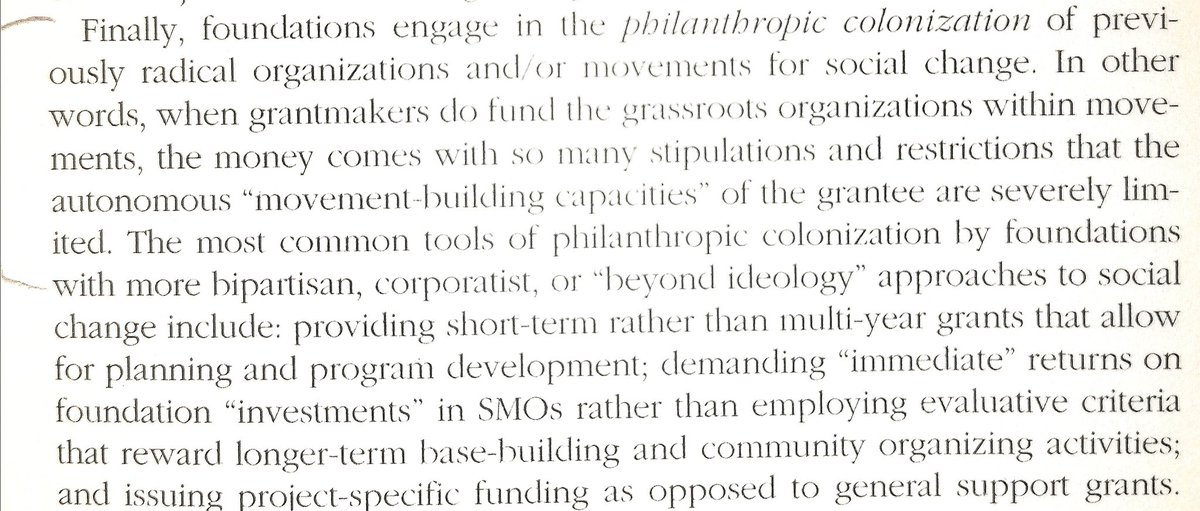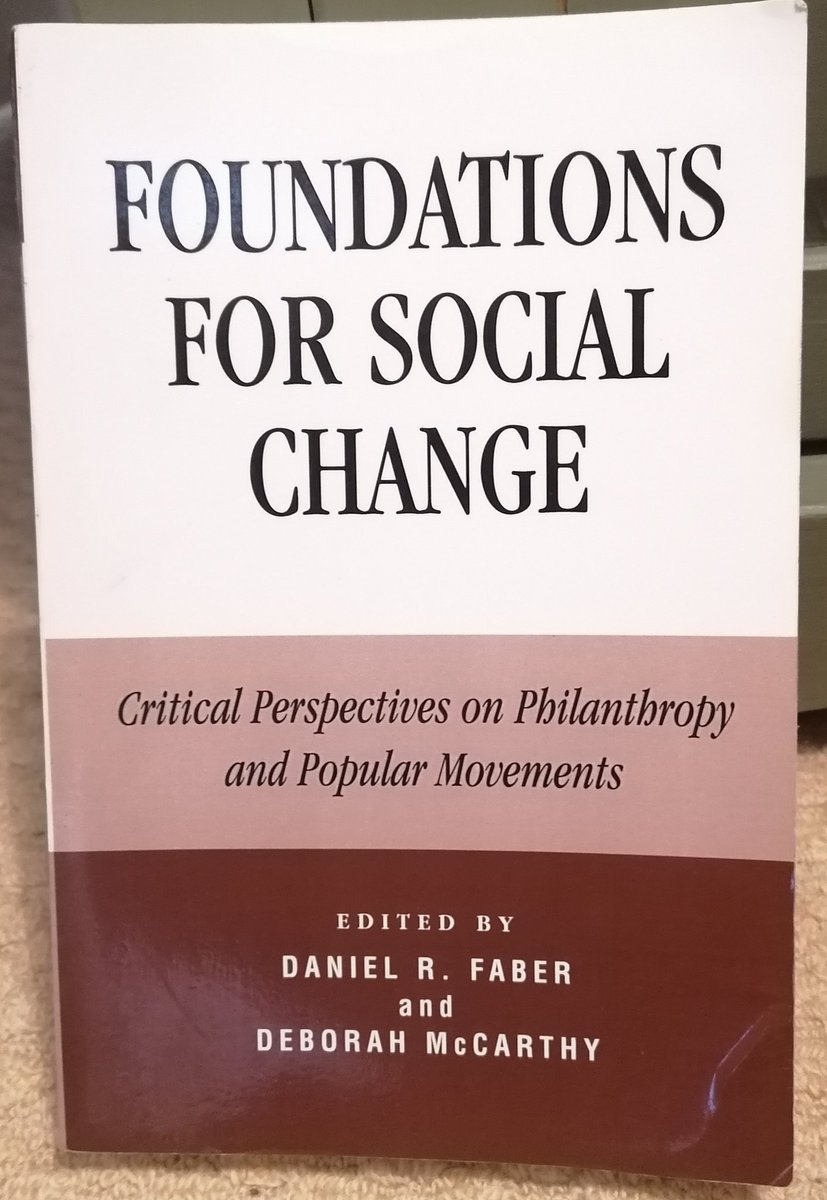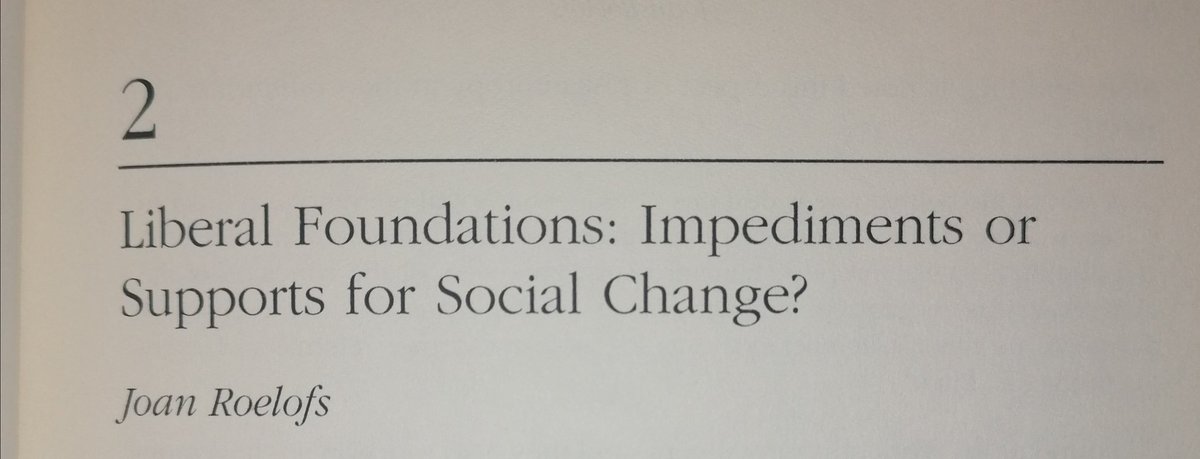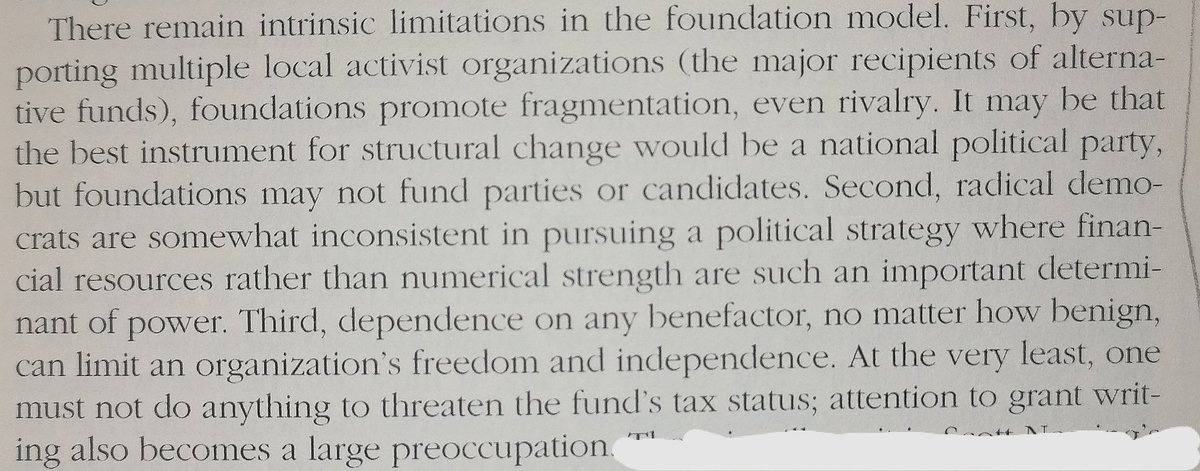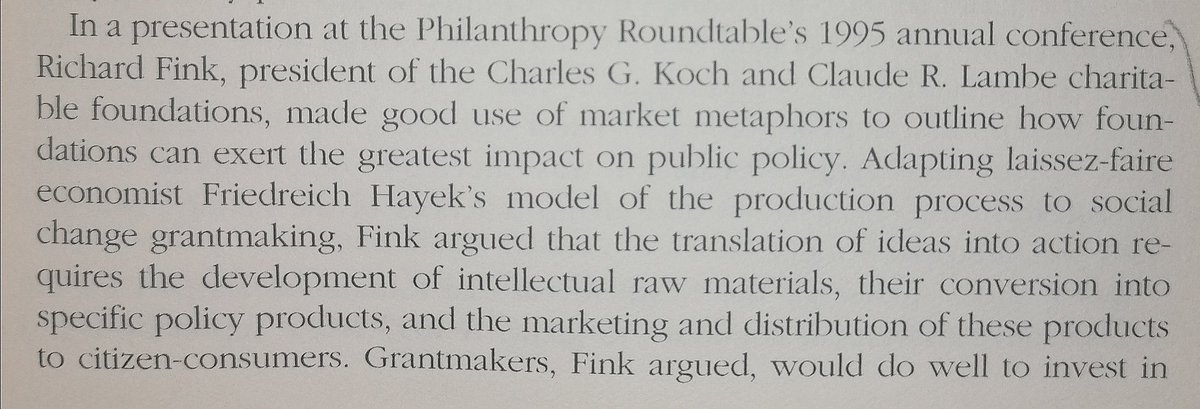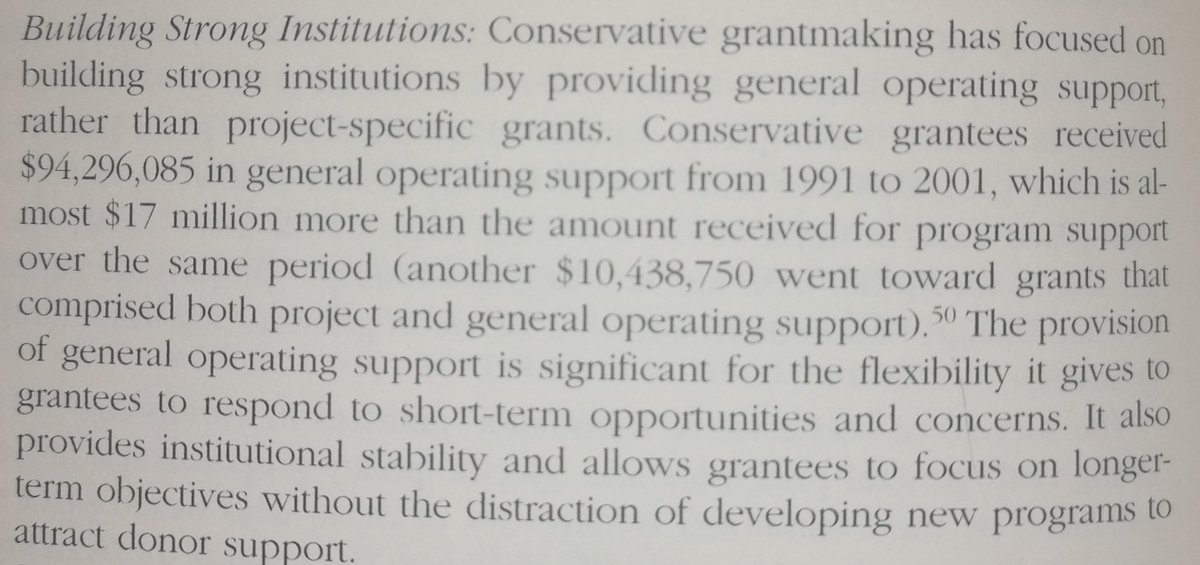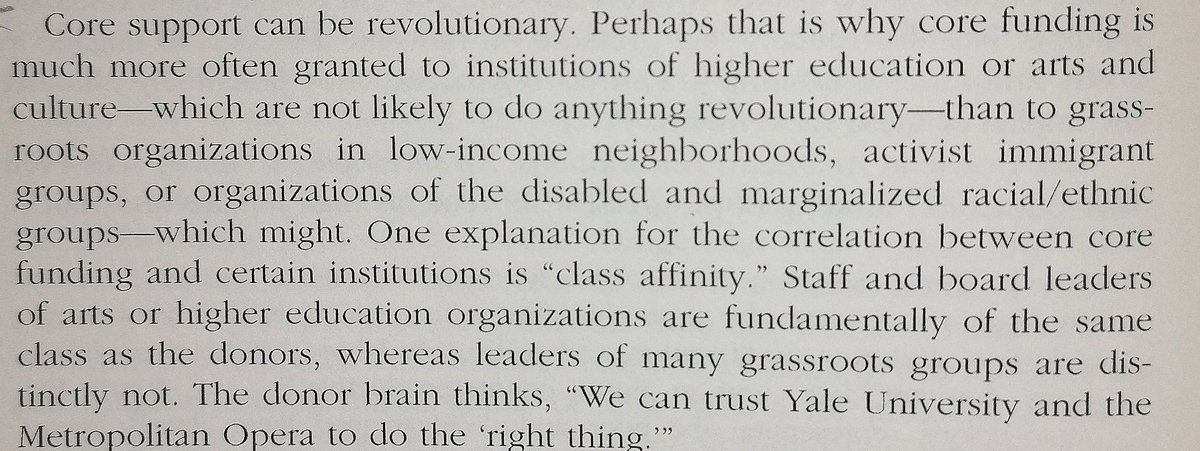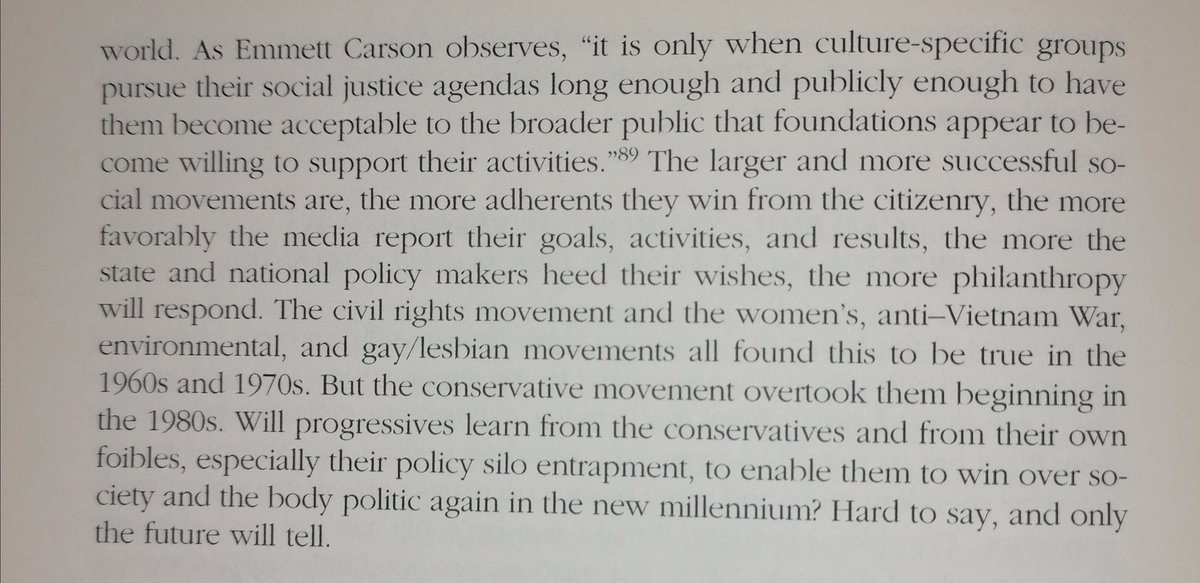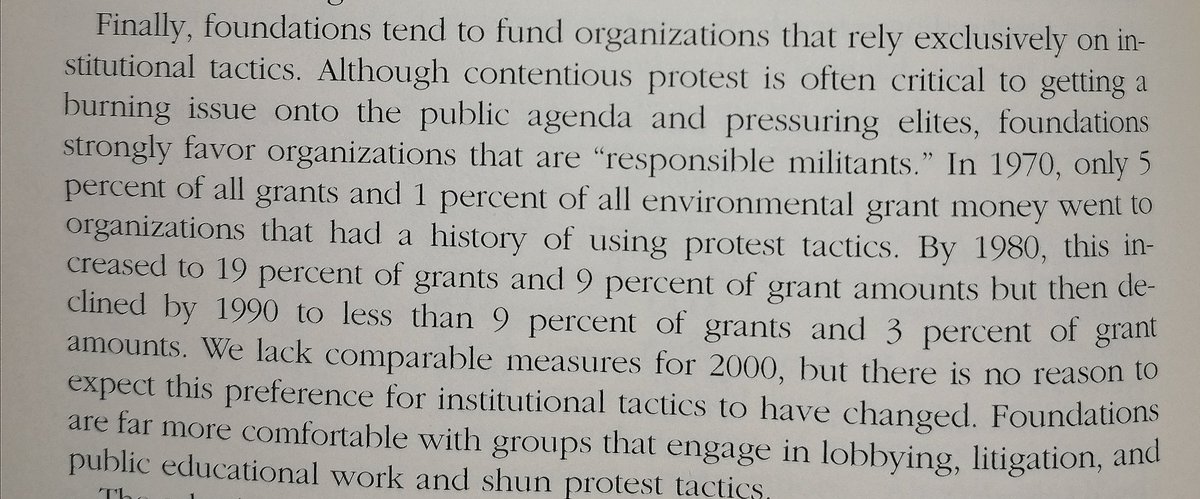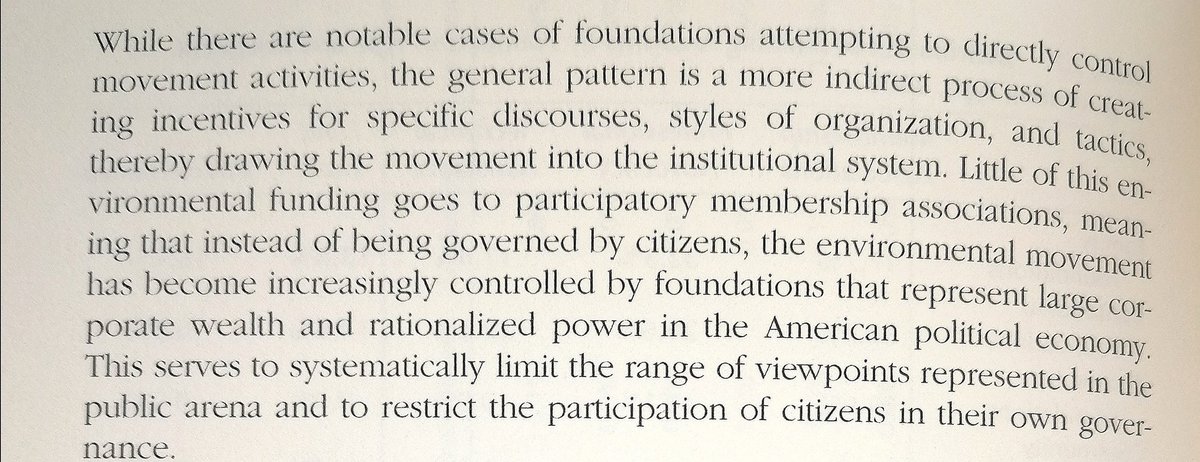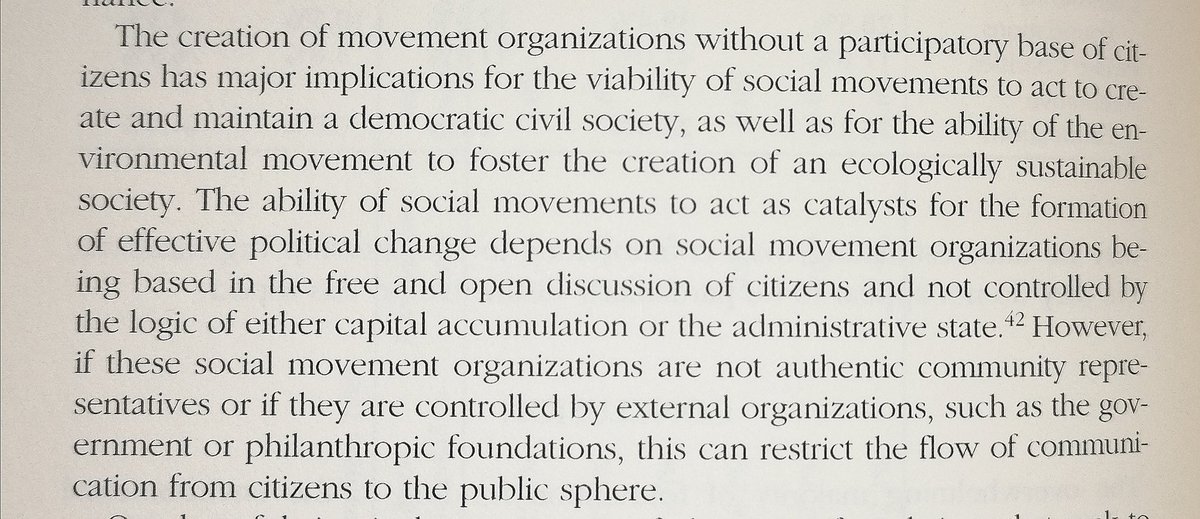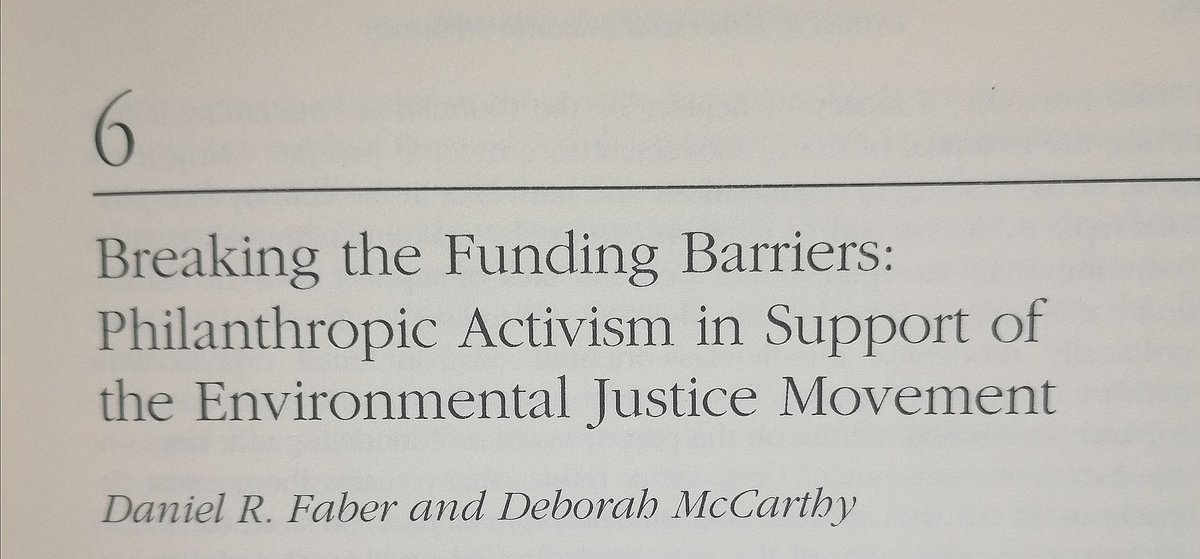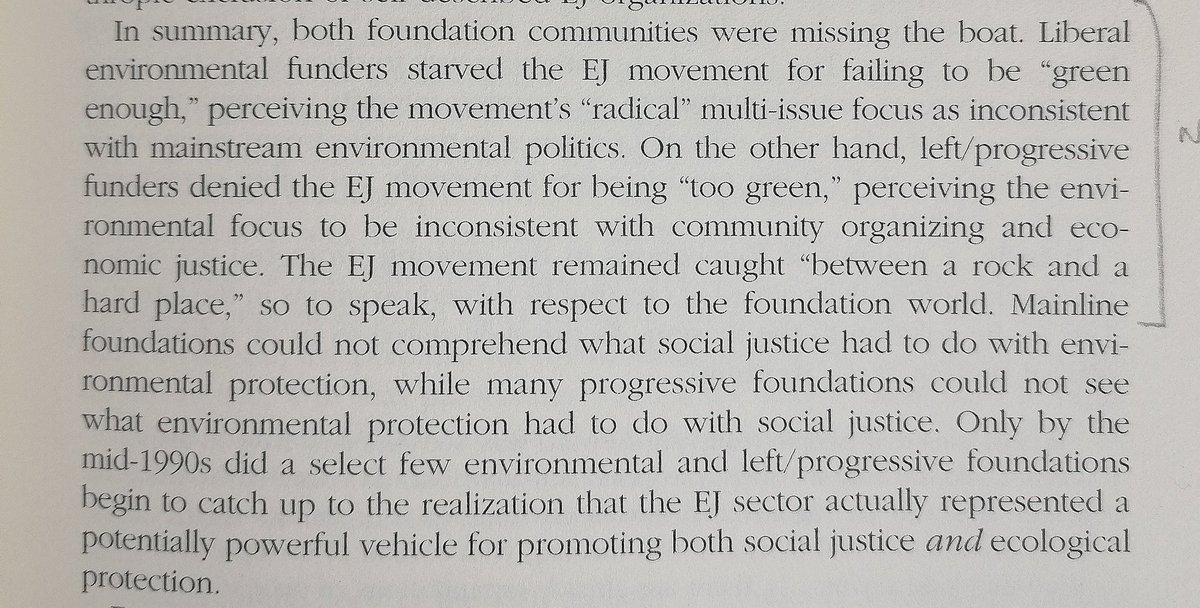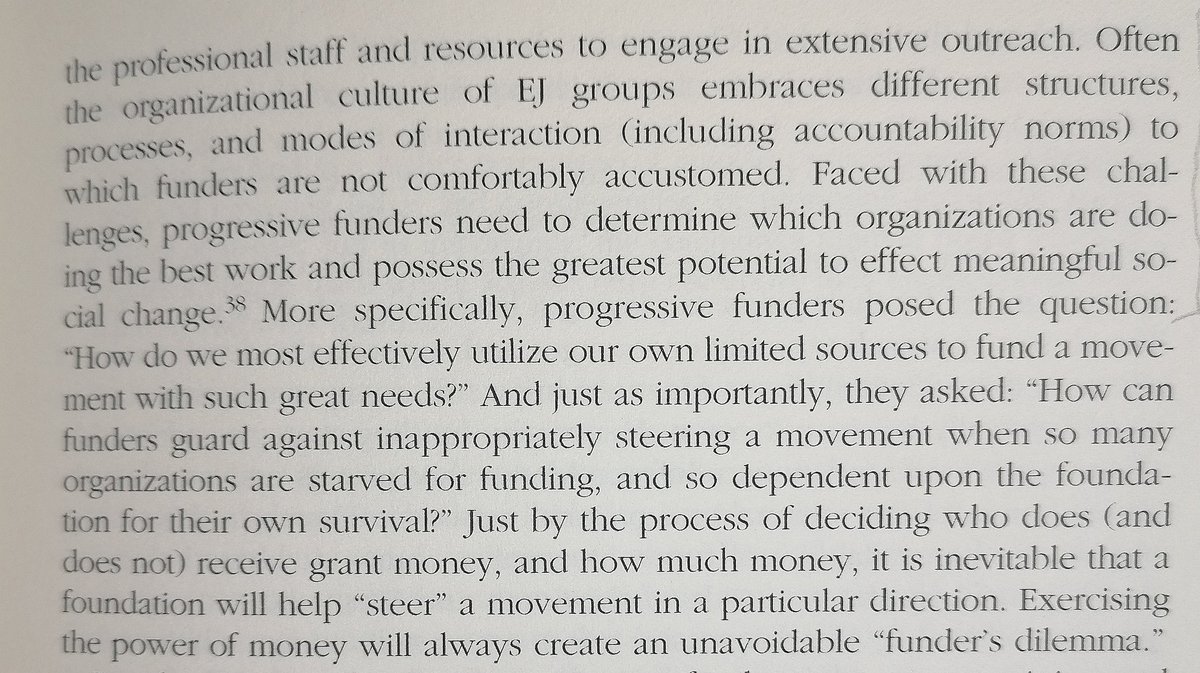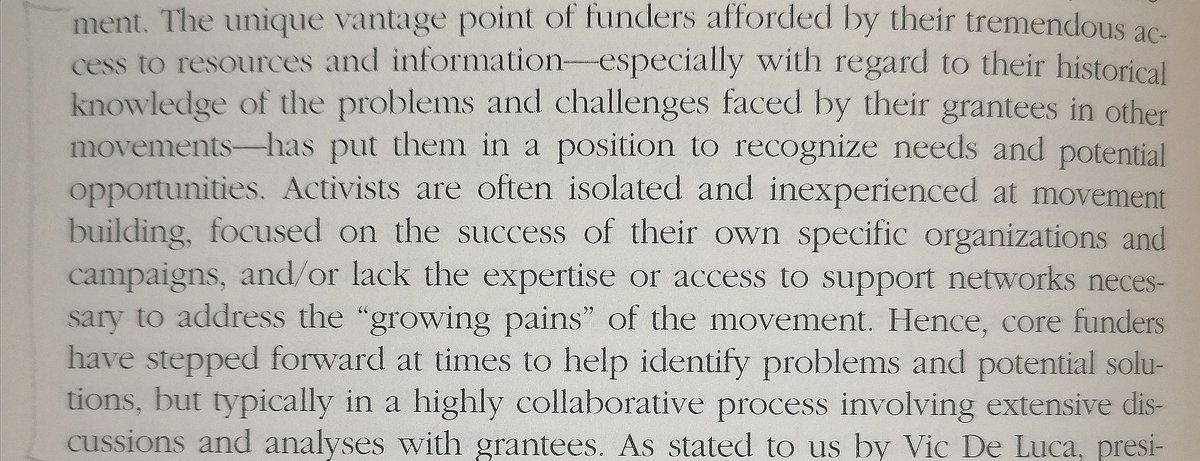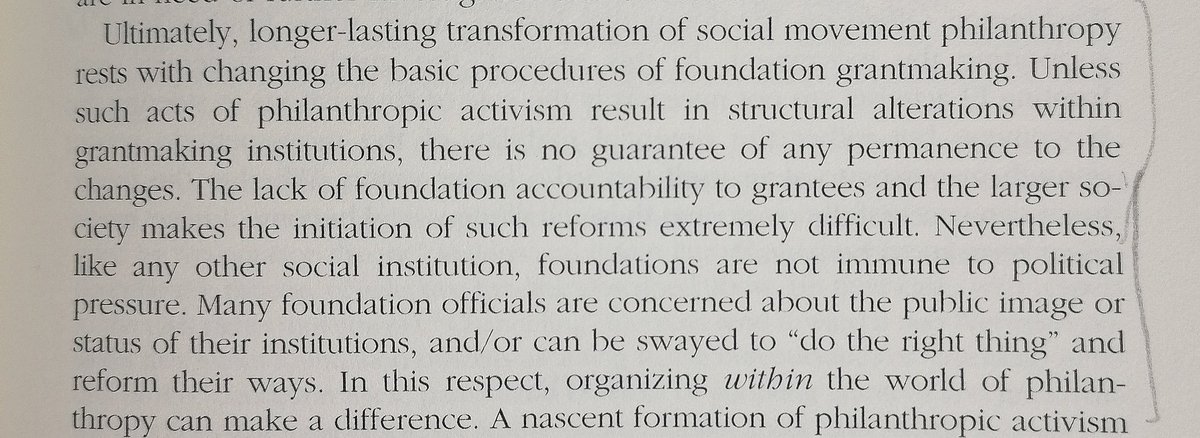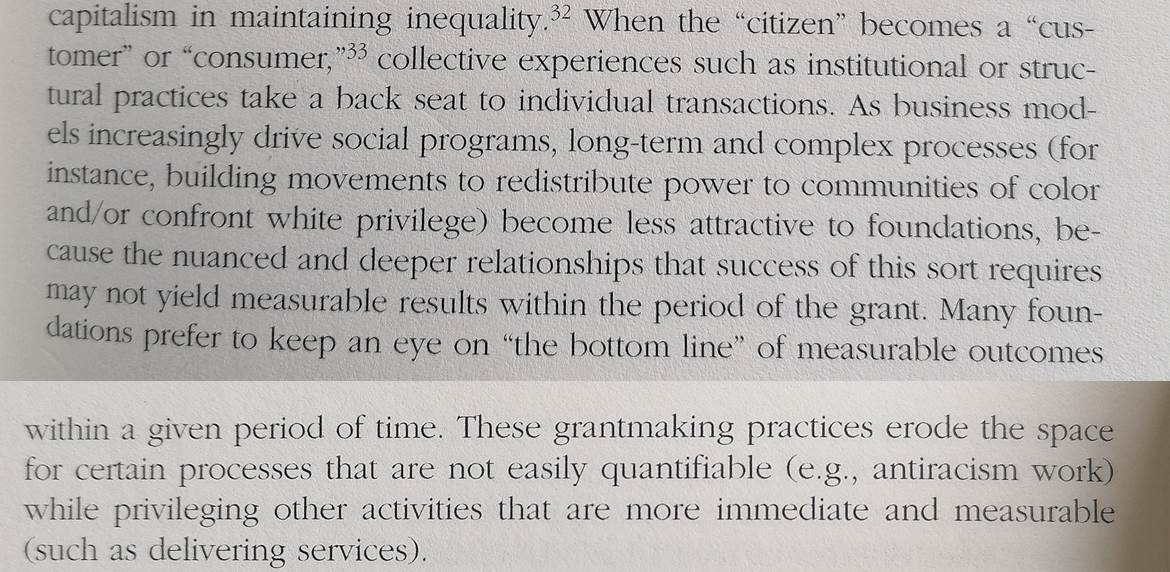Via an unexpected chain of events involving my Brother-in-law & friends who happen to be holidaying near us, a book that hadn& #39;t shown up before we left has arrived at the farmhouse!
I am VERY excited about this one. If it lives up to even 50% of the contents, it shld be amazing.
I am VERY excited about this one. If it lives up to even 50% of the contents, it shld be amazing.
Update: I suspect this might develop into a new live-tweeting endeavour, as I& #39;m only just through the intro and I& #39;ve already discovered stuff like this:
And this:
If it carries on in this vain, my mark-up pencil is going to be worn down by the end of the book.
If it carries on in this vain, my mark-up pencil is going to be worn down by the end of the book.
Found a new favourite quote:
"Civil society without power analysis is the opiate of the funding classes"
Getting that one put on a mug pronto.
"Civil society without power analysis is the opiate of the funding classes"
Getting that one put on a mug pronto.
This seems like a good statement of the fundamental challenge re the relationship btween institutional philanthropic funding and social movements...
Is the fact that this is from 2005:
a) quirky & interesting, or
b) depressing?
Is the fact that this is from 2005:
a) quirky & interesting, or
b) depressing?
Also for anyone interested in the philanthropy/social movement interface (looking in yr direction here @irfan_fozia  https://abs.twimg.com/emoji/v2/... draggable="false" alt="👀" title="Augen" aria-label="Emoji: Augen">), this typology of 3 ways funders can undermine social movements is really interesting
https://abs.twimg.com/emoji/v2/... draggable="false" alt="👀" title="Augen" aria-label="Emoji: Augen">), this typology of 3 ways funders can undermine social movements is really interesting
Firstly through marginalisation/exclusion of movements:
Firstly through marginalisation/exclusion of movements:
Secondly through exclusion/ marginalisation of organisations (i.e. whilst having recognised importance of movement/cause in general):
And finally through "philanthropic colonisation" where both cause and org are recognised, but in such a way as to distort/undermine (which seems close to the idea of "movement capture" , albeit perhaps more conscious and less structural?)
I  https://abs.twimg.com/emoji/v2/... draggable="false" alt="❤️" title="Rotes Herz" aria-label="Emoji: Rotes Herz"> this book, as you may have gathered.
https://abs.twimg.com/emoji/v2/... draggable="false" alt="❤️" title="Rotes Herz" aria-label="Emoji: Rotes Herz"> this book, as you may have gathered.
Of course, everyone else on this holiday keeps looking at me weirdly as I pore over it making "hmmm" noises and scribbling with my pencil...
But I think we call all agree that it is they who are wrong.
Of course, everyone else on this holiday keeps looking at me weirdly as I pore over it making "hmmm" noises and scribbling with my pencil...
But I think we call all agree that it is they who are wrong.
Been reading more from my new purchase, this time the chapter by Joan Roelofs on "Liberal Foundations: Impediments or Supports?"
An absolute humdinger for anyone interested in qns of whether foundations, even when as well-intentioned as possible, are potentially problematic.
An absolute humdinger for anyone interested in qns of whether foundations, even when as well-intentioned as possible, are potentially problematic.
Here& #39;s a nice pithy summary of the potential issues in terms of representing an anti-democratic influence in society & undermining focus on need for structural reform:
This is also a sharp listing of 3 further critiques of endowed philanthropic institutions.
(The point about the inherent pluralism of the funding model potentially being a flaw is v interesting).
(The point about the inherent pluralism of the funding model potentially being a flaw is v interesting).
And this passage poses a qn that is particularly fascinating at this moment IMHO: if philanthropic funders are too much of a reflection of existing systems to embrace genuine structural change, does this limit their potential when it comes to envisioning possible futures?
Anyhoo, the chapter is well worth reading for a really good critical perspective (even if the assessment of foundations veers perhaps too far towards the entirely negative at points!)
This evening& #39;s reading was the chapter in Faber & Mccarthy by Sally Covington on "Moving Public Policy to the Right: The Strategic Philanthropy of Conservative Foundations".
Lots of interesting stuff on the long-term approach to using philanthropy to fund the battle of ideas:
Lots of interesting stuff on the long-term approach to using philanthropy to fund the battle of ideas:
It& #39;s a relatively well-worn observation at this point, but it certainly does seem like there& #39;s a lot for any funder seeking to drive policy change as a way of achieving long term goals to learn from these examples.
E.g. On attitudes to core costs and funding timeframes:
E.g. On attitudes to core costs and funding timeframes:
Great quote on importance of core funding when it comes to philanthropic support for social movements, and highlighting role trust and "class affinity" play as potential barriers (from Robert Bothwell& #39;s chapter "Up Against Conservative Public Policy" in Faber & Mccarthy) :
Great final para to the Bothwell chapter in Faber & Mccarthy, on the way in which foundation funding for movements often only follows after prior growth/success has lowered risk profile.
Again, feels very 2020-apt.
Again, feels very 2020-apt.
Just finished reading a great chapter by Brulle & Jenkins on "Philanthropy & the Environmental Movement" (in Faber & Mccarthy).
Some cracking stuff on movement capture & how funders choices re narratives, org types & tactics can (deliberately or not) skew entire field:
Some cracking stuff on movement capture & how funders choices re narratives, org types & tactics can (deliberately or not) skew entire field:
Also this, on failure of foundations to support orgs with genuinely participatory nature & why this inherently limited the ability of the US environmental movement to drive change in the latter half of C20th:
Another evening, another chapter in Faber & Mccarthy& #39;s edited volume of "Critical Perspectives on Philanthropy & Popular Movements" (which is def a top 10 fave for me at this point).
Tonight, it& #39;s this cracker of a chapter on funding for the environmental justice movement:
Tonight, it& #39;s this cracker of a chapter on funding for the environmental justice movement:
Really interesting point here re how the environmental justice angle sits w/in wider environmental movement: is it a victim of being seen as "too justice-y" for green funders and "too green" for justice funders and thus forever falling through cracks of existing siloes?
I like this framing of the danger of movement capture/co-optation as a known risk to avoid from the p.o.v. of an aware & self-critical funder too (perhaps makes it seem less unavoidable...?)
Nice point here re the positive value funders can potentially add by having a "helicopter view" & being able to connect the dots btween different movements that otherwise might never exchange knowledge or experiences:
But then also a powerful point re the necessity for foundations & grantmakers themselves to change in structure/practice if there is to be any fundamental shift in the dynamic when it comes to funding movements:

 Read on Twitter
Read on Twitter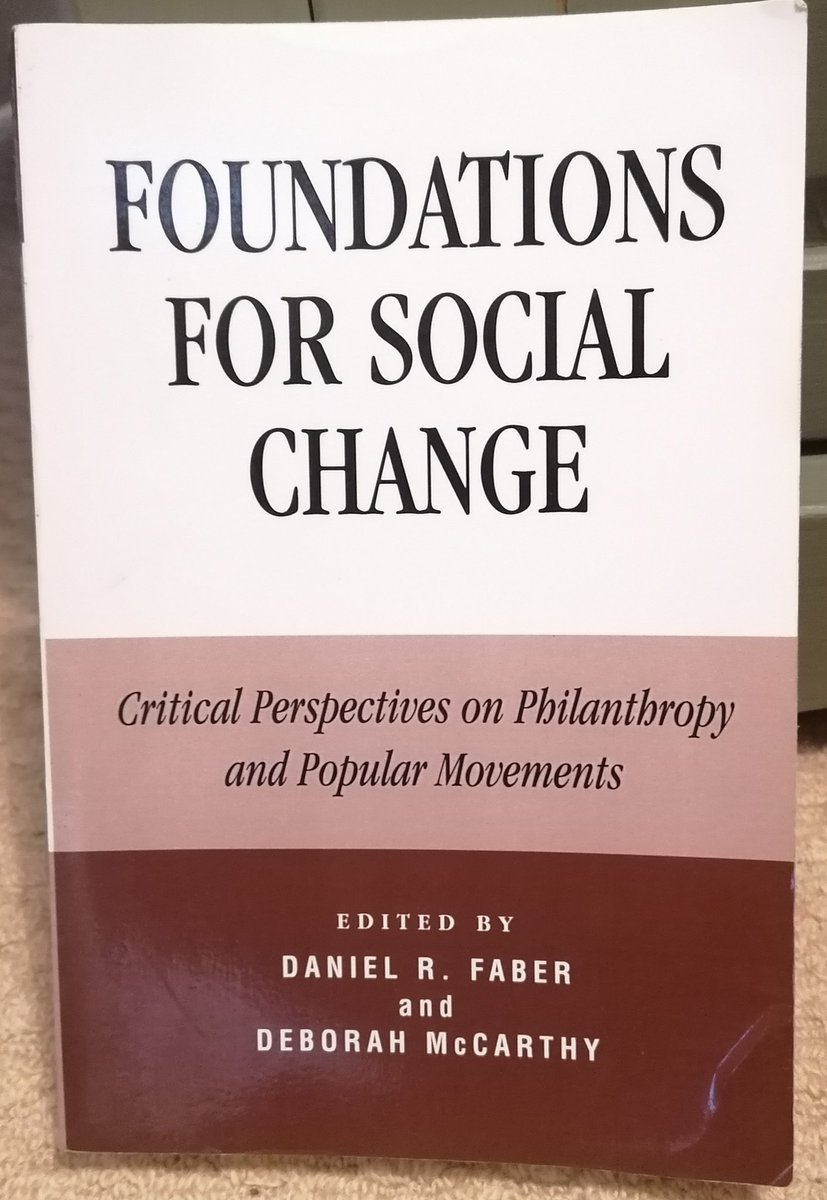
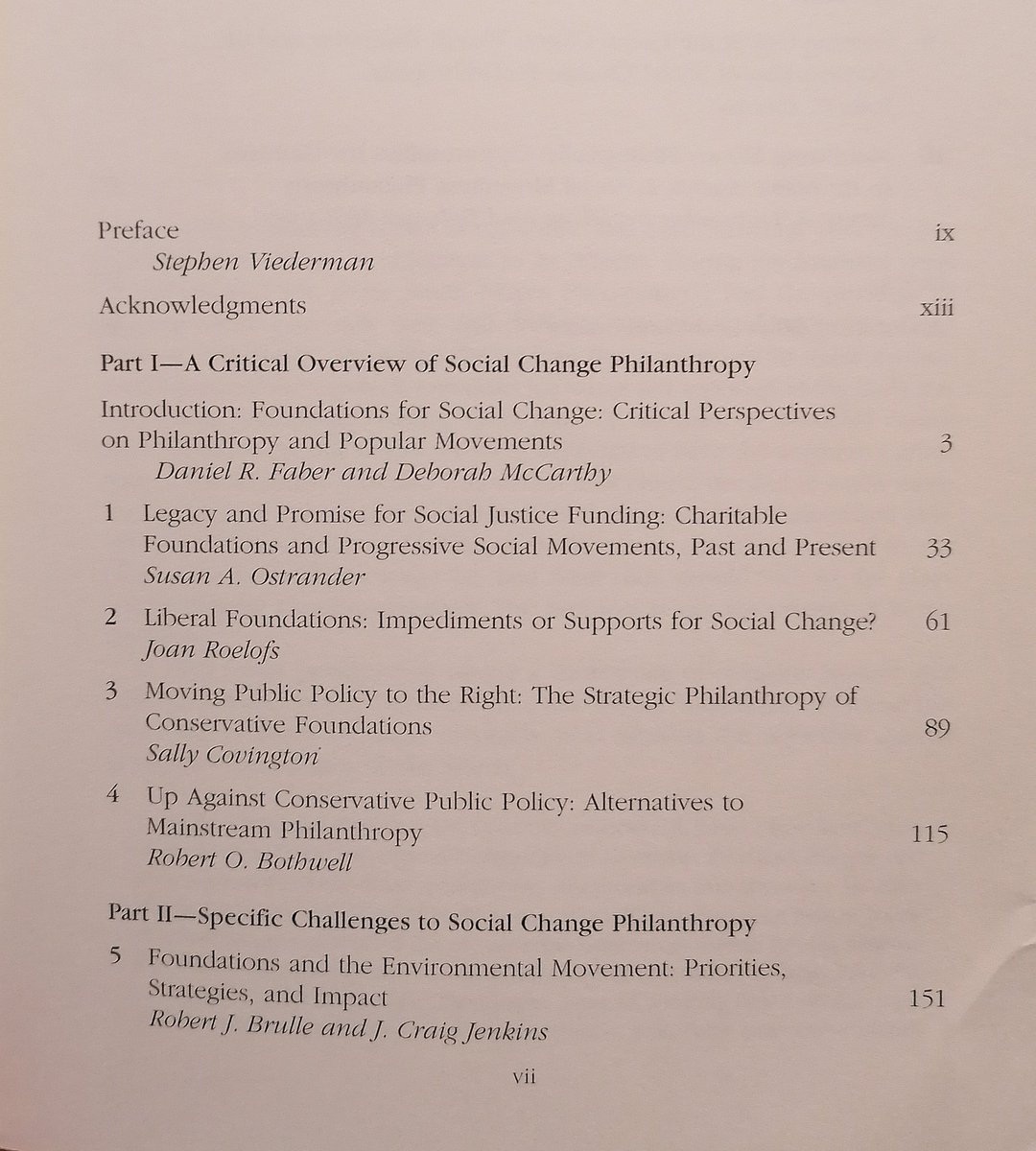
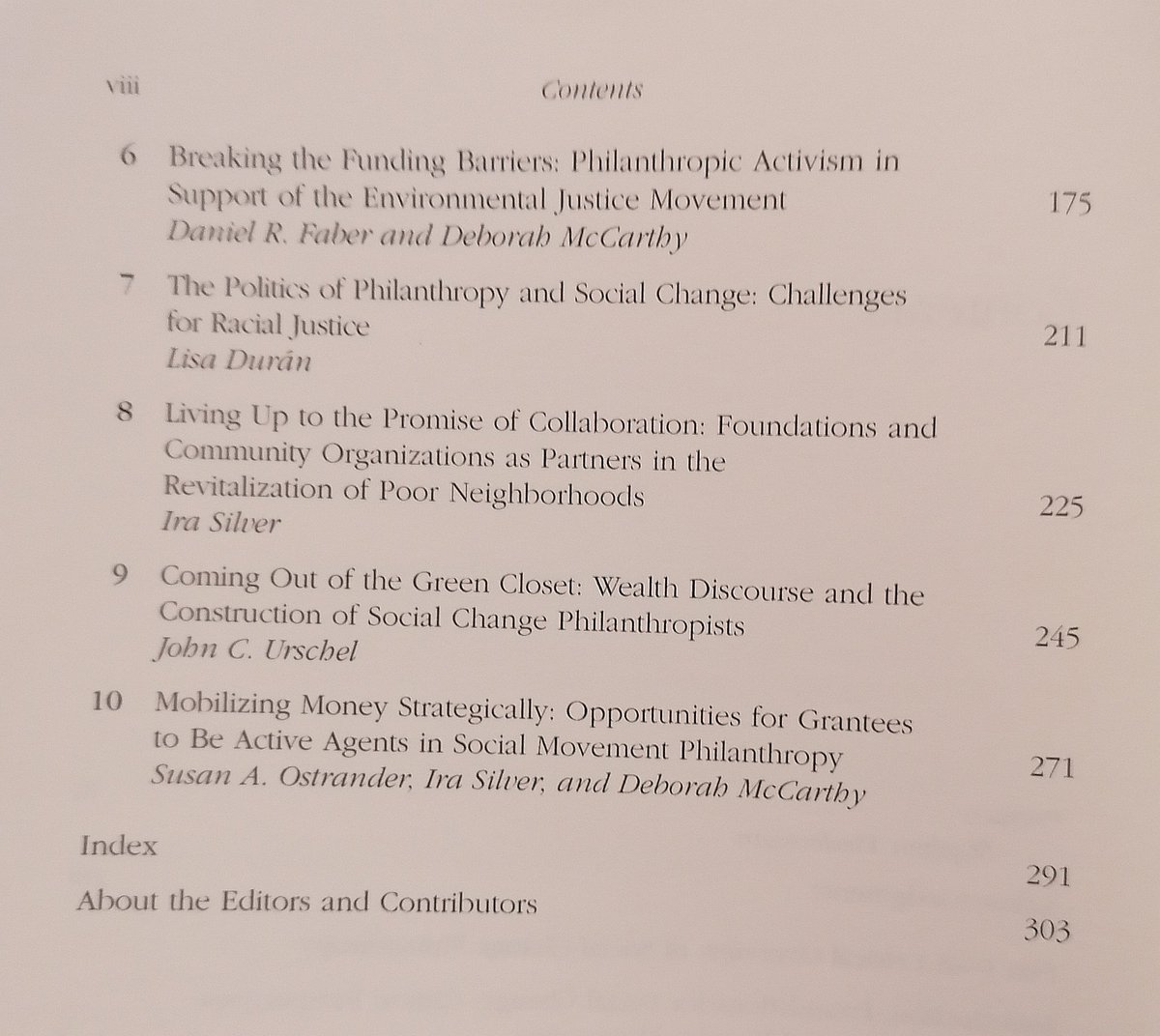


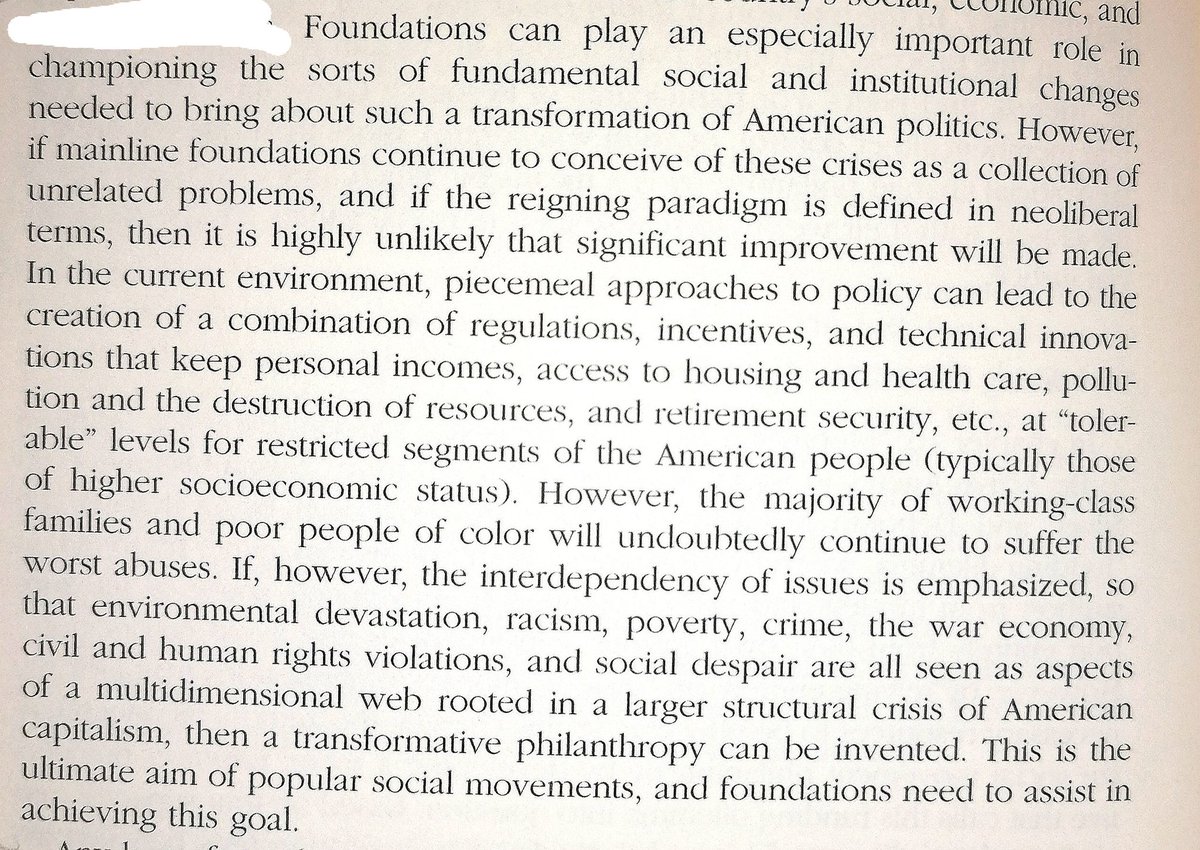
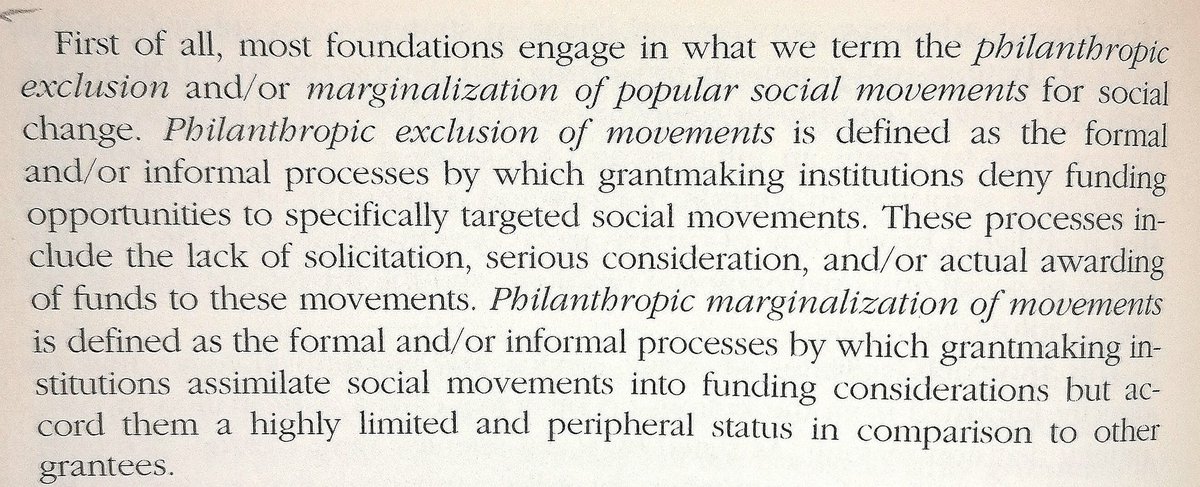 ), this typology of 3 ways funders can undermine social movements is really interestingFirstly through marginalisation/exclusion of movements:" title="Also for anyone interested in the philanthropy/social movement interface (looking in yr direction here @irfan_fozia https://abs.twimg.com/emoji/v2/... draggable="false" alt="👀" title="Augen" aria-label="Emoji: Augen">), this typology of 3 ways funders can undermine social movements is really interestingFirstly through marginalisation/exclusion of movements:" class="img-responsive" style="max-width:100%;"/>
), this typology of 3 ways funders can undermine social movements is really interestingFirstly through marginalisation/exclusion of movements:" title="Also for anyone interested in the philanthropy/social movement interface (looking in yr direction here @irfan_fozia https://abs.twimg.com/emoji/v2/... draggable="false" alt="👀" title="Augen" aria-label="Emoji: Augen">), this typology of 3 ways funders can undermine social movements is really interestingFirstly through marginalisation/exclusion of movements:" class="img-responsive" style="max-width:100%;"/>

